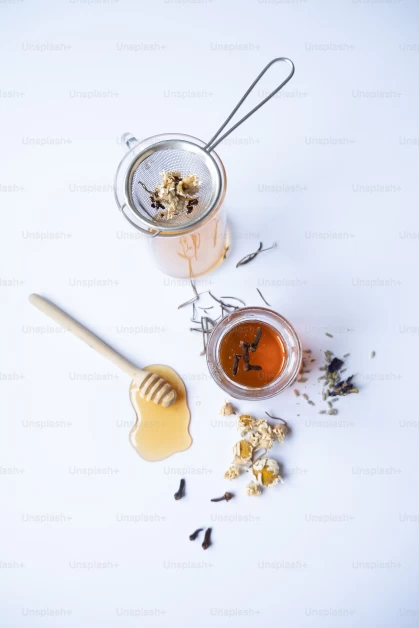Table of Contents
For those who suffer from seasonal allergies, spending time outdoors can be a miserable experience. The sore throat, itchy and watery eyes, and runny nose can put a damper on any outing. Many people have turned to natural remedies in search of relief, and one remedy that has been touted as a cure for allergies is raw, local honey. The idea behind this remedy is that by consuming local honey, you will also consume local pollen and build up a tolerance to it, resulting in fewer allergy symptoms over time. However, there is little scientific evidence to support this claim.
Does Local Honey Really Help with Allergies?
Despite the popular belief that local honey can cure allergies, studies have shown that it does not significantly help with allergy symptoms. The pollen found in local honey is not the same pollen that causes most people’s allergies. The leading cause of seasonal allergies is pollen from weeds, trees, and grasses, which is mostly wind-blown pollen and not the type of pollen that bees typically collect to make honey. Additionally, honey is made from nectar, not pollen, so it doesn’t actually contain much pollen. Any pollen found in honey is accidental and not the main component of the honey.
For example, a study published in the Annals of Allergy, Asthma & Immunology in 2002 showed no difference in allergy sufferers who consumed local honey, commercially processed honey, or a honey-flavored placebo. This evidence dispels the myth that honey can cure allergies.
The Benefits of Manuka Honey for Allergy Support
While local honey may not be effective in treating allergies, there is one type of honey that can provide some relief: Manuka honey. Manuka honey does not cure allergies, but it contains a compound called methylglyoxal (MGO), which gives it non-peroxide activity. This non-peroxide activity is not found in local honey and makes Manuka honey more beneficial for allergy support.
The high levels of methylglyoxal in Manuka honey make it the most active and beneficial honey available today. This compound has been shown to be effective in reducing allergy symptoms such as a sore throat and inflammation. While Manuka honey doesn’t directly target allergies, its active ingredient can be an effective treatment for nasal mucus, which is a common symptom of allergies.
How to Use Manuka Honey for Allergy Support
To get the best results, it is recommended to consume Manuka honey regularly throughout allergy season. Taking a small spoonful every morning as part of your wellness routine can provide many benefits besides allergy relief. Manuka honey can also be stirred into a Nettle infusion and consumed as a cold herbal tea or added to energy balls for natural sweetness and wellness support.
Where to Find the Best Manuka Honey
When shopping for Manuka honey, it is important to choose a trustworthy and transparent company. Not all Manuka honey is created equal, so it’s essential to know exactly what you are getting and where it comes from. One highly recommended brand is Pacific Resources International (PRI). They provide a full Certificate of Analysis (COA) for every jar of honey they sell, showing the levels of DHA, MG, and UMF. Their honey is sourced and packed by family-owned beekeepers and complies with Manuka Honey standards set by the New Zealand Ministry for Primary Industries.
To add high-quality Manuka honey to your allergy support arsenal, visit Pacific Resources International here.
In conclusion, while local honey may not effectively treat allergies, Manuka honey can provide some relief due to its non-peroxide activity. Manuka honey contains a compound called methylglyoxal (MGO) that is not found in local honey and has been shown to reduce allergy symptoms. Incorporating Manuka honey into your wellness routine can help alleviate allergy symptoms such as a sore throat and inflammation. Remember to choose a reputable brand like Pacific Resources International to ensure you are getting the best quality Manuka honey.



